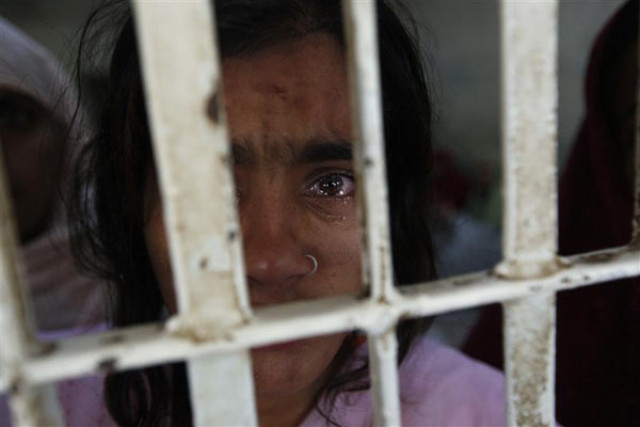If one begins to think about welfare institutions in Pakistan, Dar-ul-Sukun definitely comes to mind. It is located within the premises of the Punjab Welfare Society, Lahore. It houses psychiatric patients, both male and female, in separate wards. Most of the residents living there have been forsaken by their families.
In some cases, monetary support is the only sign of love that the families exhibit; in other cases, brief visits are made to quell the guilt-inducing inner voice.
The residents of Dar-ul-Sukun live their lives haunted by the memories of their past, which are both bitter and sweet. Their present is different though. It is only bitter and filled with constant humiliation.
Dar-ul-Sukun is anything but a sanctuary of peace
I worked there as a trainee clinical psychologist along with my class mates. We held intervention sessions for the residents. Initially, when I started to work there, I believed that the families of the residents were responsible for these circumstances. However, with time, my perception changed.
Within a couple of weeks, the residents started to gain comfort in telling me and my team members their problems. The dark alleys of the institute that had not initially disturbed us started to speak of the atrocities that took place behind the closed doors of a place that promised peace.
On most mornings, the administrative staff is either very late to come in to work, or they don’t show up at all. The furniture and washrooms are in shambles. The residents are made to eat in greasy, unwashed utensils. The female ward does not even have s supply of warm water, making the mere task of taking a bath torturous during winters.
Dar-ul-Sukun does not even have an in-house psychologist or psychiatrist. Most residents are getting medication without proper assessment. To make matters worse, they are forced into submission through physical and verbal abuse, which are unduly sanctioned by the administration as the “only way to control the mentally disabled”, further aggravating their condition.
The place lacks security in every sense. Two months into our programme based on group interventions, one regular attendee of the group started to skip sessions. Upon inquiry, we were informed that she had developed a 'gynea problem'. This was surprising as we had always seen this member in good spirits with a beaming smile on her face.
We were told that the woman’s torment was the result of sexual abuse which took place before she was brought to the institute. Something about the explanation did not sit right, as this woman had been living there for a good two and a half years. We were left wondering as to why the symptoms did not appear before. Further probing revealed that sexual abuse was not uncommon at Dar-ul-Sukun.
Owing to the lack of professional psychological support and the generally oppressive environment of the place, many residents have developed new psychiatric illnesses.
The oldest member of the house was brought to this place after being diagnosed with epilepsy. She was otherwise a woman of sound mind. Now, 23 years later, she has started to exhibit symptoms of schizophrenia, which is a severe form of mental disturbance.
Disgruntled by this state of affairs, whenever we raised our voices, we were told that a lack of funds and resources was the main reason behind these conditions. Interestingly enough, when Hamza Shahbaz was to visit Punjab Welfare Society, the nearby institute for the disabled was whitewashed overnight.
Accounts of the stable residents also revealed that the administration takes away any money that they receive from their families, saying that they have no use for it as they are well provided for already. The goods which they receive in charity are also taken away from them.
Even if one agrees that it is difficult to afford basic comforts with insufficient funds, one still doesn’t understand why the patients are being tortured, abused and practically robbed of their rights?
I hate to have found out all this. A well-reputed place like Dar-ul-Sukun is supposed to be a safe haven for the ill, mentally disturbed and abandoned.
It should not be a nightmare.
Read more by Sahrish here.
Lahore's Dar-ul-Sukun, now an institute of torture and abuse
Working at Dar-ul-Sukun I learnt of robbery, sexual abuse and the downward spiral of those held there.



COMMENTS
Comments are moderated and generally will be posted if they are on-topic and not abusive.
For more information, please see our Comments FAQ